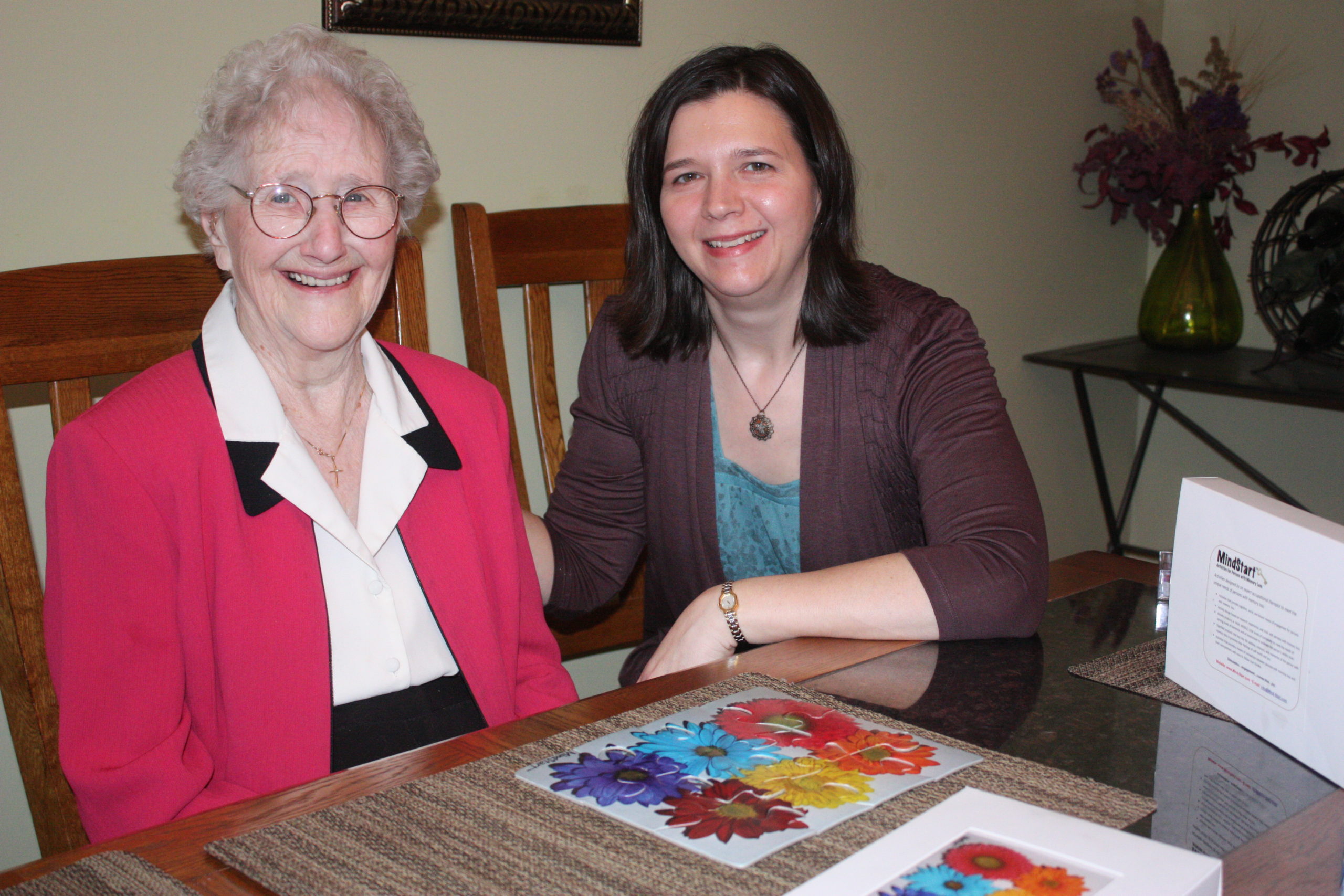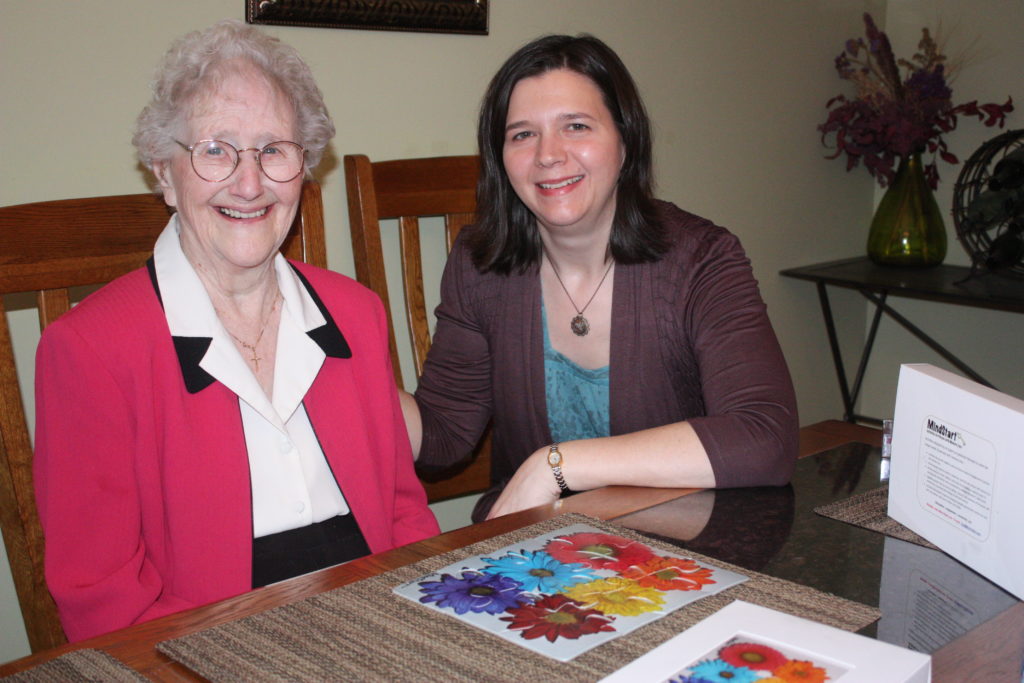
Is there someone in your life that has dementia, whether it be Alzheimer’s disease, lewy body dementia, or other type? If so, you know how dementia disrupts everyday life. As the person progressively has more difficulty with memory, communication, and completing everyday tasks, he or she can become disengaged from daily life. And disengagement can actually lead to a more rapid decline, as the person stops trying to do things. It is the ‘use it or lose it’ phenomena.
The good news is that there is help we can give the person with dementia to keep doing things, allowing them a sense of purpose, better quality of life, and less likely to have negative behaviors, like restlessness and repeated questioning
What Is Activity?
Most people think of an activity as an outing or an event – a card game, bowling with friends, a play at the local theater. Those are activities, but that is a very narrow view of activities.
Activities (or what us occupational therapists call occupations) are the things that we do every day in our lives. If you think through a day of yours, you can see these different types of activities that happen in your day:
- Self-care/basic need activities: bathing, getting dressed, eating, sleeping.
- Household activities: washing dishes, emptying garbage, checking mail
- Work-type activities: using the phone, meetings, paperwork
- Leisure-type activities: walking the dog, lunch with friends, reading
Of course, this is just a snippet of all the activities a healthy adult does in a day. Some of the activities are ones you have to do and some are ones you want to do. But all of them together produce a fulfilling, productive life.
Can Activity Really Help People with Alzheimer’s and Other Dementia? (Learn more about the research)
People who have dementia have difficulty with daily life activities due to the brain damage that is occurring, as it disrupts the connections that help them know what to do, when to do it, and how to do it. It starts with difficulty doing the complex tasks, like paying bills or driving. Then it can progress to difficulty with simpler skills, like making breakfast and changing into clean clothes each day. By this point, family or friends of the person have recognized the difficulties and are putting measures in place to make sure the person is safe and basic daily needs are met. But this can turn into the caregiver doing almost everything for the person, with the person not engaging him or herself in the activities of daily life. This is not beneficial for the person.
Two bodies of research tell us the benefit of keeping the person with dementia engaged in activities:
- In the MAKS study in Germany, an Alzheimer’s activity program, given along with routine dementia drugs to nursing home patients, was effective at stopping the dementia from progressing further. Effects of the therapy program lasted for at least 12 months. In contrast, the control group of patients who took only the routine dementia drugs, but did not receive the activity therapy, had their dementia progress.
- Research on the TAP program, or Tailored Activity Program, showed that engaging the person with dementia in activities that matched their ability level and interests, was successful at reducing agitation, the need for medications to manage dementia-related behaviors, and enhanced quality of life for the person. It also gave the caregiver a break.
So keeping people with dementia active and doing things even as they decline is very important – but it does take planning and a change in the caregiver’s approach and perspective.
Where Do I Start with Adding in Activities for the Person with Dementia? (Learn more about choosing activities)
There are 3 things to consider when choosing activities for the person with Alzheimer’s disease or other form of dementia: ability level; past history and interests; current preferences.
- Ability level:
- People at earlier stages of dementia can still do activities with 2 or more steps, with supervision, as needed. Examples include helping with simple meal preparation, sorting recycling, and communicating with friends or family by text or computer.
- People at lower levels do better with 1 step, repetitive tasks, along with simple verbal and/or visual cues (like you pointing). Example include, washing off the table, taking pop tabs off pop cans and looking at a picture book with a friend.
- Past history: What jobs and hobbies did the person do or enjoy in the past? What roles in life did they hold (i.e. a mother, a church volunteer?). The answers to these questions can give you good ideas of what types of activities you might choose for the person to try. Then adapt those activities to the person’s ability level, as described above.
- Current preferences: The person may no longer enjoy activities he or she did in the past AND the flip can be true – an enjoyment may be found in an activity the person has never tried before!
How Can I Support Keeping the Person with Dementia Active? (Learn more about supporting activities)
There are a few key concepts for caregivers (whether professional or family) to keep in mind when helping the person with dementia to engage in activities:
- It is about the ‘doing’, not the final outcome: Lose your pre-conceived notions of how the activity should be done or what the end product might be, as people in the middle and late stage of dementia are not capable of understanding the goal of an activity. Just enjoy the process and the current moment of doing!
- Don’t correct the person or say it is being done wrong (unless, of course, there is a safety concern). Be patient and give the person time, being supportive and not critical.
- Give encouragement and praise. Tell the person “Great job!” or “Thanks for helping me!”. Positive reinforcement goes a long way to helping the person feel that they truly are being productive, giving a sense of accomplishment and happiness.
I hope this information helps you to help the person with dementia in your life. Helping the person with dementia to find ways to still contribute and to use their remaining abilities in activities can make such a difference. The person will have an uplifted mood and life quality and the caregiver can be uplifted, as well, knowing that the person’s energy is being directed in a positive direction leading to many, enjoyable moments.
Monica is an occupational therapist and owner of MindStart. Through her experience she has designed puzzles, games, books, and other activities specifically for people with dementia. Click below to access a great list of activity ideas and to keep in touch with MindStart:
Get 50 Activities to Engage the Mind, Body, and Spirit of the Person with Dementia
And, don’t forget to sign up for the EasyLiving/Aging Wisely newsletter for more great information! For help with dementia care and activity assistance by dementia-trained caregivers, call us at 727-447-5845.







